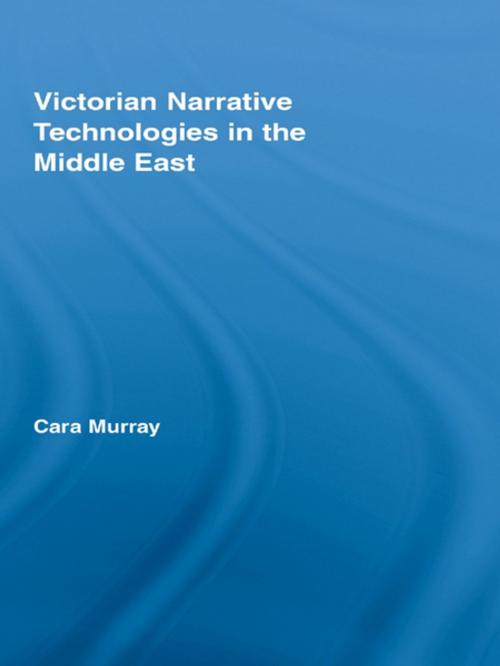Victorian Narrative Technologies in the Middle East
Fiction & Literature, Literary Theory & Criticism, Asian, Middle Eastern| Author: | Cara Murray | ISBN: | 9781135905880 |
| Publisher: | Taylor and Francis | Publication: | June 15, 2008 |
| Imprint: | Routledge | Language: | English |
| Author: | Cara Murray |
| ISBN: | 9781135905880 |
| Publisher: | Taylor and Francis |
| Publication: | June 15, 2008 |
| Imprint: | Routledge |
| Language: | English |
Victorian Narrative Technologies tells the story of how the British, who wanted nothing to do with the Suez Canal during the decades in which it was being internationally planned and invested, came to own it. It stands to reason that the nation that prided itself on its engineering prowess and had more to gain than any other in the construction of a direct route to India would have played a role in its making. Yet the British shied away from any participation in the international project—only to swoop down on the finished project and claim it as their own when they purchased it in 1875, an event which led directly to Egypt’s colonization in 1882. Murray uncovers the little-known story of Britain’s swing from ambivalence about to acceptance of what would become a potent symbol of Western imperialism.
Beginning with the railway mania of the 1840s and concluding with the opening of the new global routes of the 1870s, Murray argues that changes in notions about character, investment, and technology propagated in the novel form over this period enabled Britain to lay claim to the globe. Arguing that literary genre was itself a technology that spread imperialism, Murray shows how roads, canals, and novels together colonized the Middle East.
Victorian Narrative Technologies tells the story of how the British, who wanted nothing to do with the Suez Canal during the decades in which it was being internationally planned and invested, came to own it. It stands to reason that the nation that prided itself on its engineering prowess and had more to gain than any other in the construction of a direct route to India would have played a role in its making. Yet the British shied away from any participation in the international project—only to swoop down on the finished project and claim it as their own when they purchased it in 1875, an event which led directly to Egypt’s colonization in 1882. Murray uncovers the little-known story of Britain’s swing from ambivalence about to acceptance of what would become a potent symbol of Western imperialism.
Beginning with the railway mania of the 1840s and concluding with the opening of the new global routes of the 1870s, Murray argues that changes in notions about character, investment, and technology propagated in the novel form over this period enabled Britain to lay claim to the globe. Arguing that literary genre was itself a technology that spread imperialism, Murray shows how roads, canals, and novels together colonized the Middle East.















